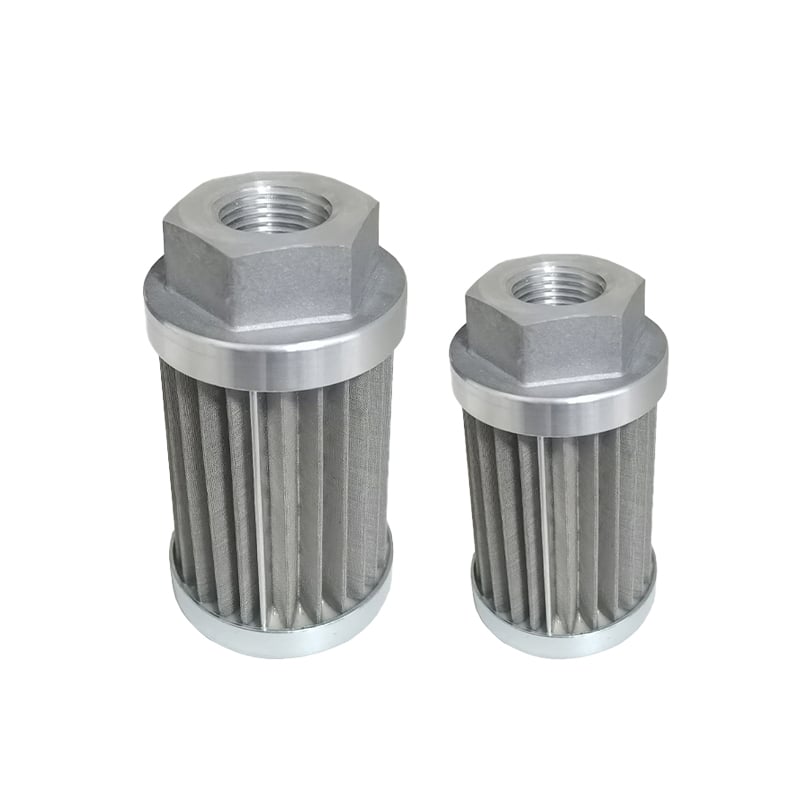A hydraulic oil filter element is a crucial component in hydraulic systems, designed to remove contaminants from the hydraulic fluid. Its primary purpose is to ensure the cleanliness and purity of the hydraulic fluid, which is vital for maintaining the efficiency and longevity of the hydraulic components. Here's a detailed explanation of its working principle:
Working Principle:
-
Fluid Flow: Hydraulic oil flows through the system under pressure, carrying energy from the pump to various actuators and control valves.
-
Introduction to the Filter: The hydraulic oil enters the filter housing, which contains the filter element.
-
Filtration Process: As the oil passes through the filter element, the contaminants present in the oil are trapped by the filter media. These contaminants can include particles of dirt, metal shavings, rust, and other debris.
-
Types of Filter Media:
- Porous Media: Made from materials like paper, felt, or synthetic fibers, these filters trap particles as the oil flows through tiny pores.
- Wire Mesh: A mesh screen that physically blocks larger particles from passing through.
- Depth Filters: Use a thick, porous material to capture contaminants throughout the depth of the medium.
- Surface Filters: Contaminants are captured on the surface of the filter medium.
-
Contaminant Separation: Different mechanisms are used to separate contaminants based on their size, shape, and nature:
- Straining: Larger particles are physically blocked by the filter media.
- Sedimentation: Heavier particles settle at the bottom of the filter due to gravity.
- Adsorption: Smaller particles and colloidal substances stick to the surface of the filter media.
-
Clean Oil Exit: After passing through the filter element, the cleaner oil exits the filter housing and continues its journey through the hydraulic system, ensuring that only clean oil reaches critical components such as pumps, valves, and actuators.
-
Maintenance and Replacement: Over time, the filter element accumulates contaminants, which can clog it and reduce its effectiveness. Regular maintenance involves checking the filter condition and replacing it when necessary to maintain optimal filtration performance.
Importance of Hydraulic Oil Filters:
- Protection of Components: Clean oil reduces wear and tear on hydraulic components, extending their service life.
- System Efficiency: A clean system operates more efficiently, reducing energy consumption and operating costs.
- Prevention of Damage: By removing harmful contaminants, filters prevent damage that could lead to costly repairs or system failure.
- Improved Performance: Clean oil ensures smooth operation and responsiveness of hydraulic actuators and control valves.
In summary, the hydraulic oil filter element works by allowing hydraulic oil to flow through a filter media that captures and retains contaminants, thereby ensuring that only clean oil circulates through the hydraulic system. Regular maintenance and timely replacement of filter elements are essential for maintaining system integrity and performance.
Quote Inquiry Contact us!

